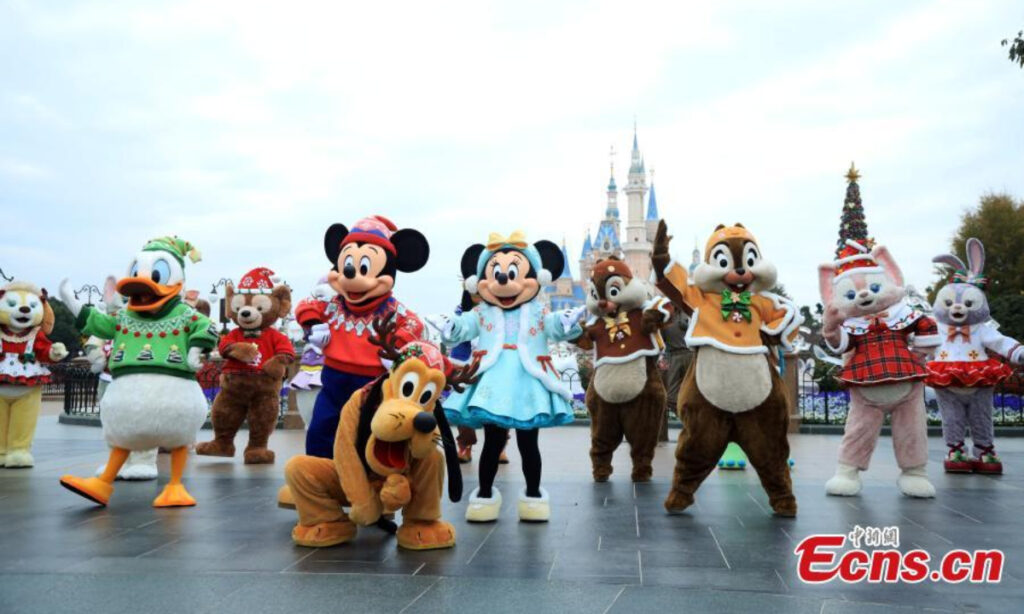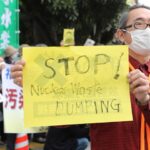Chinese youngsters’ inclusiveness shows their ‘cultural confidence’
Changsha became the latest Chinese city in recent months to dismiss rumors that it will become home to the third Disneyland park in China. While the clarification dampened local residents’ anticipation for a nearby Disneyland theme park, the power of these rumors also reveals the Chinese public’s penchant for US cultural products has not been dampened by strained bilateral ties.
The popularity enjoyed by the theme parks and other US cultural products stands in sharp contrast with Chinese netizens’ ridicule of US politics and the country’s China policy. There has been no public backlash toward the park, which is contrary to the “pervading anti-US nationalism” in China portrayed by Western media.
The Changsha Municipal Bureau of Culture, Tourism, Radio, Film and Television said on Wednesday that it has no plans to introduce a Disney theme park, when asked by the public if such a plan was being negotiated.
It continued that such an inquiry had “provided us food for thought,” and that the bureau will pay great attention to cooperative projects with Disney and try to win such projects for Changsha.
Disney currently runs two theme parks in China; one in Hong Kong and another in Shanghai.
In recent months, rumors have been spreading that a new Disneyland would be built in Beijing’s neighbor city Tianjin, Wuhan in Central Hubei Province or Chengdu in Southwestern Sichuan Province. All of them have been denied.
The frenzy over Shanghai Disneyland hasn’t receded since it opened seven years ago. The Shanghai International Resort, home to Shanghai Disneyland, has raked in more than 61.5 billion yuan ($8.9 billion) in tourism revenue so farand welcomed more than 113 million visitors, according to its management.
Meanwhile, long lines have constantly been the norm at Universal Studios Beijing since it opened in 2021. A Beijing resident surnamed Chen said that earlier this month she went to the theme park on a Wednesday in the drizzling rain, but still had to wait for more than an hour and a half to get into an attraction.
Moreover, US movies and TV series, although losing some of their sheen in recent years due to “routine cinematography and storylines,” have still held onto a vast market among Chinese viewers. Movies such as Fast X and Transformers: Rise of the Beasts have all topped the Chinese box office this year.
The Chinese public’s frenzy for US cultural products stands in sharp contrast with its cold, harsh ridicule of US politics and attempts to contain China.
Former US secretary of state Henry Kissinger’s visit to China is one of the heatedly discussed topics on Chinese social media platforms. While welcoming Kissinger as an “old friend” of China, some netizens commented that “the incumbent US politicians should be ashamed, as they are sponging off a centenarian to do their job.”
Thirty-two year old Kathy, who works in Shanghai and is a frequent visitor to Shanghai Disneyland, said that going to the park feels like “returning to a happy childhood.” Having been educated in the US and exposed to US culture for a long time, Kathy said that liking US cultural products does not equate to embracing US culture as a whole.
“There are things to like because the country has a very mature cultural industry,” said Kathy. “And our generation is inclusive, not hotheaded. This means we embrace whatever is good for us, but we can also distinguish between good and bad.”
The Global Times Research Center conducted a survey in 2022 of people aged 14-35 from more than 100 cities, and received 1,655 responses. In this survey, 54.6 percent of respondents said they look down on the West and 39.3 percent said they look at Western countries as equals.
Zhang Yiwu, a professor at Peking University, said that young Chinese people’s inclusive attitude reflects their “cultural confidence,” while attempts by the US to label anything affiliated with China as an attempt by Beijing to “infiltrate” the country reveal Washington’s lack of a similar cultural confidence.
Zhang said that smooth cultural and people-to-people exchanges serve as a small window that assuages tensions between Beijing and Washington.
“If the US keeps going down its current path, that small window will eventually close, and at that time there will be no way back,” he added.
(Global Times)




